Thursday date for high level talks on Uganda growth
 Those with more disposable income to spend, enjoy a better lifestyle than the majority which is raising more questions about income inequalities.
Those with more disposable income to spend, enjoy a better lifestyle than the majority which is raising more questions about income inequalities.
August 20—The invitation-only annual Economic Growth Forum (EGF) is due to take place in Kampala on Thursday August 22, when technocrats, bureaucrats, business people and academicians debate whether Uganda is on the right path towards prosperity. Participants include speakers from abroad, but it is not confirmed whether President Yoweri Museveni will attend.
The finance ministry, together with the UK-based International Growth Centre (IGC), are organizing this third edition under the theme, ‘Accelerating Economic Growth for Shared Prosperity’.
This was the same theme for the inaugural forum in September 2017. In the aftermath of those discussions, it was decided there was need for a link between the country’s growth and budget strategies.
Apollo Munghinda, the finance ministry spokesperson tweeted on Monday, “The EGF will provide evidence for an accountable policy agenda for sustainable and inclusive growth in Uganda.”
After the sharp decline during financial year 2016/2017, when the GDP growth rate fell below four percent the economy is on a rebound. Today, GDP is growing at just above six percent and the latest monthly Stanbic PMI, that measures private sector sentiment, recorded a 58.0, one the highest to date.
Growth in services (7.2%) largely catering for urban centres, is outpacing manufacturing/industry but agriculture employing the bulk of Uganda’s population, is still dominated by low-earning subsistence farmers. The share of agriculture to GDP has reduced from over 50 pc in 1986 to 22 pc in financial year 2018/19. Questions about widening income inequalities are growing louder.
Speaking during presentation of the National Budget in June, Museveni said, “When you transform households and they get income, you will empower and transform the economy. You will boost the population’s purchasing power and in turn boost the country’s revenue collections. We are here presenting a budget but it is being financed by a small fraction of Ugandans, the 32% of the population who are in the money economy while 68% of the population are mere consumers of the budget without making a contribution and we must stop this.”
Currently, domestic revenues are financing nearly 75 pc of the national budget and the government is becoming more aggressive about collecting taxes. Other factors are out of the government’s hands.
Before the end of the year, major investment decisions in Uganda’s nascent oil and gas sector are expected to be made by international companies. But several civil society groups complain this injection of new foreign capital will only make the income inequality situation much worse, because of public sector corruption.
To date, Uganda has an estimated 6.5 billion barrels of oil of which about 1.5 billion barrels is recoverable. Future revenues from this sector are seen as an important driver to transform the economy within the next 20 years.
According to officials, the conference provides an opportunity to discuss key growth constraints and required budget financing, learning from policy experiences in other countries, and identify a course of policy actions to drive industrialisation and job creation.
IGC is an economic research centre based at the London School of Economics, operated in partnership with University of Oxford’s Blavatnik School of Government. The centre was launched in December 2008 and is funded by the Department for International Development.

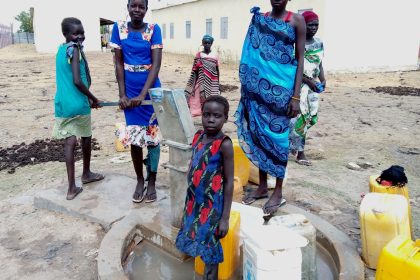 Unpacking results-based financing: balancing strengths with weaknesses
Unpacking results-based financing: balancing strengths with weaknesses
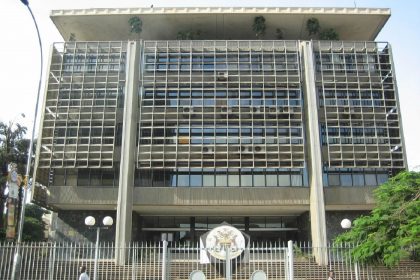 Mergers and degradations predicted as Uganda lenders move to comply with higher capital thresholds
Mergers and degradations predicted as Uganda lenders move to comply with higher capital thresholds
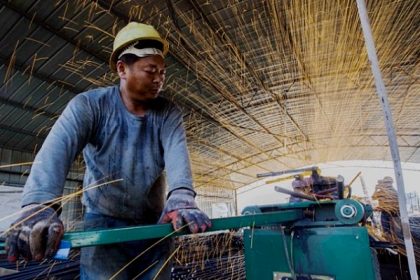 Regional tentative policy to govern cross-border labour gets approval
Regional tentative policy to govern cross-border labour gets approval
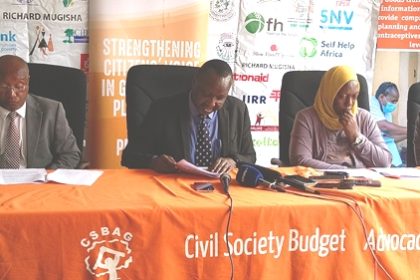 Uganda on edge of debt distress, needs 35 years to settle domestic arrears
Uganda on edge of debt distress, needs 35 years to settle domestic arrears
 Uganda raises purity standards for tin exports
Uganda raises purity standards for tin exports
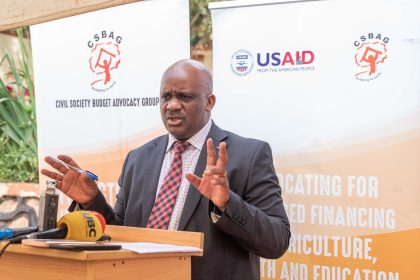 CSBAG warns fiscal indiscipline and runaway graft a threat to Uganda’s economic recovery
CSBAG warns fiscal indiscipline and runaway graft a threat to Uganda’s economic recovery
